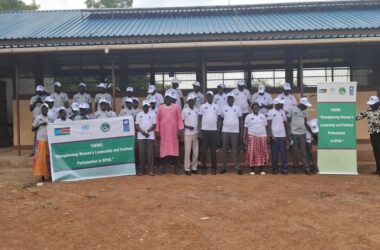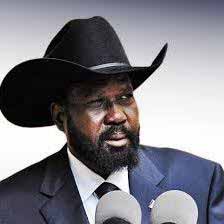By William Madouk
The Ministry of Gender, Child, and Social Welfare, in collaboration with stakeholders, has taken a significant step towards strengthening legal protections for survivors of gender-based violence (GBV).
This was acknowledged during a one-day advocacy workshop, held to review and refine the much-anticipated anti-GBV draft bill.
The workshop, organized in partnership with the Christian Agency for Peace and Development and Equality Now, brought together key stakeholders to discuss and address issues related to GBV to ensure that the proposed legislation provides comprehensive legal remedies for survivors and imposes stringent penalties on perpetrators.
Under the theme: “Strengthening Advocacy for Gender Equality, Mobilizing Support for Anti-GBV and Related Legislative Framework.”
Aya Benjamin, the Minister for Gender, Child and Social Welfare while addressing the High-level consultative stakeholders said: “this is a significant step as it comes five years after the bill was first tabled in parliament in 2019.”
“It underscores the government’s renewed commitment to addressing the alarming rates of sexual and gender-based violence (SGBV) in South Sudan,” she added.
Cases of gender-based violence rose to a record high in the latest statistics of 2024 in South Sudan.
Between April and June 2024, the United Nations Mission in South Sudan documented 317 violent incidents affecting at least 1062 civilians in the country, including 160 women and 188 infants. This has resulted in the death of 442 and leaving 297 with injuries.
Based on a report; 197 are abductions, meanwhile, 126 individuals were subjected to sexual violence, highlighting a concerning 181 percent in abductions compared to the same period in 2023.
However, this caused the Ministry of Gender to announce the appointment of an Anti-GBV taskforce on October 26, 2024, to accelerate the enactment of the Anti-GBV Bill to bring down cases.
Speaking also at the event, the executive director for the Christian Agency for Peace and Development (CAPAD), Peter Malier welcomed Aya’s move to establish a taskforce, citing that it would fast-track the bill.
“We welcome the move by the ministry to appoint a task force to accelerate the enactment of the Anti-GBV in our country as it will foster the implementation of the Africa Charter on Rights and Welfare of the Child, family law, the Child Rights Act of 2008
“And the domestication and implementation of treaties that South Sudan has ratified to ensure the protection of South Sudanese women and girls,” he added.
Nina Masore, a program officer with Equality with Equality Now stated that: “we welcome this move as the Antti-GBV bill seeks to reform and consolidate South Sudan’s on gender-based violence.”
“The Anti-HBV bill encompasses domestic violence, sexual violence, harmful customary practices, child protection, and more,” she added.
To her, the bill will create structures such as the Anti-GBV committee, the Anti-GBV fund, specialized courts, and family protection centers to ensure comprehensive support and protection for victims.
According to UN data, 2,300 cases of sexual violence were reported in South Sudan in the first half of 2018 alone, placing it second only to Uganda for the highest rate of sexual violence in East Africa.
This commitment aligns with the Transitional Constitution of the Republic of South Sudan (2011, as amended), particularly Article 16 and Article 17, as well as the Revitalized Agreement on the Resolution of the Conflict in the Republic of South Sudan (R-ARCSS, 2018).
The Anti-GBV Bill seeks to conform with the Transitional Constitution and specifically deals with all forms of gender-based violence including conflict-related sexual violence (CRSV), domestic violence, intimate partner violence, sexual violence, and physical violence.
Also, psychological violence and economic violence; and harmful customary practices including child marriage (including age of marriage, non-consensual marriage (commonly known as forced marriage);
including abduction, polygamy, demanding the return of bride price or dowry, girl child compensation, girl booking and grooming, child sacrifice, female genital mutilation, forced virginity testing, and widow compensation as required by articles (15) and 16(4)(a) of the Transitional Constitution of South Sudan.



